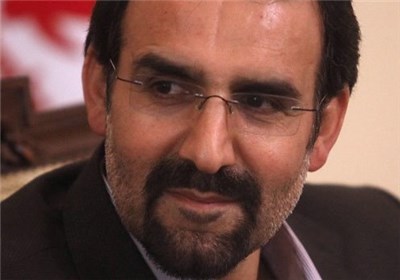 An Iranian official says issues surrounding Iran’s nuclear energy program are artificial, stressing that negotiations on the program are approaching a “logical” ending.
An Iranian official says issues surrounding Iran’s nuclear energy program are artificial, stressing that negotiations on the program are approaching a “logical” ending.
“Issues surrounding Iran’s nuclear program have been artificially created, and should have been settled a long time ago,” Iranian Ambassador to Moscow Mehdi Sanaei said at a session of the Civic Chamber of the Russian Federation on Wednesday, stressing the peaceful nature of Iran’s nuclear energy program.
Sanaei also said that negotiations between Iran and the P5+1 group -- France, Britain, the US, Russia and China, plus Germany -- have a logical ending, but that it is difficult to predict the results of the talks.
He further placed emphasis on the continuation of talks between Tehran and the six world powers, adding, “There is no doubt that the negotiations should continue to see all issues settled.”
He further referred to a recent deal between Tehran and Moscow for the construction of eight more nuclear power plants in Iran, adding, “We hope the nuclear agreement which was signed on Tuesday between Iran and Russia will contribute to the expansion of economic cooperation and relations between the two countries.”
The agreement was signed between Chief Executive Officer of Russia’s Rosatom State Atomic Energy Corporation, Sergey Kirienko, and head of the Atomic Energy Organization of Iran, Ali Akbar Salehi, in Moscow on November 11.
On November 10, Iranian Foreign Minister Mohammad Javad Zarif, US Secretary of State John Kerry and European Union envoy Catherine Ashton wrapped up two days of discussions in the Omani capital, Muscat. On November 11, top officials from Iran and the P5+1 group wrapped up the talks, which were led by Zarif and Ashton.
Last November, Iran and the P5+1 clinched an interim nuclear accord that took effect on January 20 and expired six months later. However, they agreed to extend their talks until November 24 as they remained divided on a number of key issues.
The Muscat meetings revolved around the outstanding issues that must be resolved before the conclusion of a final deal on Iran’s nuclear energy program. On the top of the agenda were the extent of Iran’s uranium enrichment and the timetable for the removal of sanctions. The next round of nuclear talks between Iran and the world powers is set to be held in the Austrian capital of Vienna on November 18-24.
Sergei Ryabkov, Russia’s deputy foreign minister, has said he is “reasonably optimistic” that Iran and the P5+1 can reach a comprehensive nuclear deal before the deadline.
By Press TV
The Iran Project is not responsible for the content of quoted articles.

 QR code
QR code